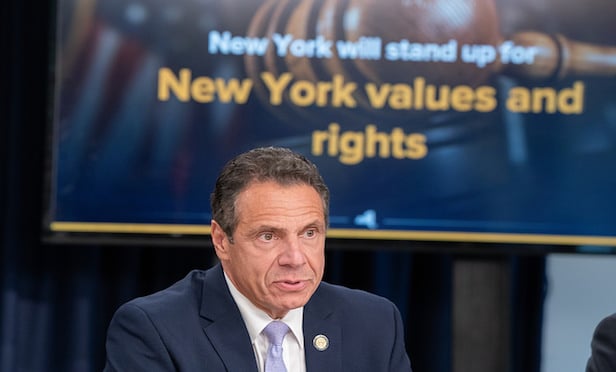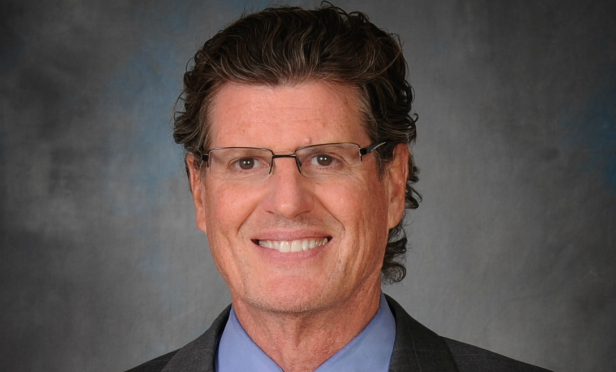CLEVELAND—At a time when demand for affordable housing is “unlimited” and established multifamily developers have begun turning to the sector, KeyBank's Rob Likes sees “a lot of uncertainty” surrounding project financing. That uncertainty stems from the Trump administration's tax-reform plans and in particular, the question of how great a reduction will be implanted in the corporate tax rate.
“The incoming administration has indicated that they'd like to see the corporate tax rate down to 15%” from its present 35%, says Likes, national manager of KeyBank's Community Development Lending & Investing platform. “The word on the street is that that's pretty low and probably won't happen, and so a lot of the investors and owners in the affordable housing space are starting to underwrite closer to a 25% corporate tax rate. “
That 25% corporate tax rate could make a big difference in the production of affordable housing, Likes says. The reason is that a lower tax rate reduces the incentive for corporations to purchase Low Income Housing Tax Credits.
“In turn, that lowers the pricing, and when you lower the pricing on tax credits, then there is less equity going into the affordable housing projects,” he says. “And so the developers and owners of affordable housing will have to find other ways to continue generating affordable housing, such as finding gap money, soft money or maybe funds from the state agencies.” The prospect of a lower corporate tax rate, when combined with increases of 75 to 100 basis points in interest rates on 10-year Treasuries over the past couple of months, has resulted in “a lot of deals not penciling right now.
“And so unfortunately the affordable housing industry is predicting that the production of affordable housing could go down next year,” Likes continues. “There could be 10% less affordable housing next year, depending on the corporate tax rate; the reduction could be higher. We need the production and preservation of affordable housing to increase, and that's why you saw the Cantwell-Hatch bill to increase LIHTC funding.”
The Affordable Housing Credit Improvement Act of 2016, introduced by Sens. Orrin Hatch (R-UT) and Maria Cantwell (D-WA) earlier this year, would increase the level of funding to the 30-year-old program by 50%. “The LIHTC program has been the most successful affordable-rental program in history,” Likes told GlobeSt.com in August. “Increasing the amount of LIHTC that is available for the private sector to invest in certainly will help generate and preserve more affordable housing. There's significant demand for the tax credits, and the more tax credits, the better.”
Even if demand for the tax credits now diminishes as the result of a lower corporate tax rate, the demand for the affordable units the credits help finance won't. “When we go across the country and meet with community leaders, the number one thing that comes up is, 'we need more affordable housing,'” says Likes. So we are dedicated to providing more affordable housing. We're dedicated to the Community Reinvestment Act and we're dedicated to our $16-billion community benefits program that we're rolling out starting in January, of which over $8 billion is dedicated to community development lending and investment.
“The demand for affordable housing is not going away,” he says. “If anything, it will continue to increase. So we're committed to continue finding ways and be out in front, hopefully providing some leadership.”
CLEVELAND—At a time when demand for affordable housing is “unlimited” and established multifamily developers have begun turning to the sector, KeyBank's Rob Likes sees “a lot of uncertainty” surrounding project financing. That uncertainty stems from the Trump administration's tax-reform plans and in particular, the question of how great a reduction will be implanted in the corporate tax rate.
“The incoming administration has indicated that they'd like to see the corporate tax rate down to 15%” from its present 35%, says Likes, national manager of KeyBank's Community Development Lending & Investing platform. “The word on the street is that that's pretty low and probably won't happen, and so a lot of the investors and owners in the affordable housing space are starting to underwrite closer to a 25% corporate tax rate. “
That 25% corporate tax rate could make a big difference in the production of affordable housing, Likes says. The reason is that a lower tax rate reduces the incentive for corporations to purchase Low Income Housing Tax Credits.
“In turn, that lowers the pricing, and when you lower the pricing on tax credits, then there is less equity going into the affordable housing projects,” he says. “And so the developers and owners of affordable housing will have to find other ways to continue generating affordable housing, such as finding gap money, soft money or maybe funds from the state agencies.” The prospect of a lower corporate tax rate, when combined with increases of 75 to 100 basis points in interest rates on 10-year Treasuries over the past couple of months, has resulted in “a lot of deals not penciling right now.
“And so unfortunately the affordable housing industry is predicting that the production of affordable housing could go down next year,” Likes continues. “There could be 10% less affordable housing next year, depending on the corporate tax rate; the reduction could be higher. We need the production and preservation of affordable housing to increase, and that's why you saw the Cantwell-Hatch bill to increase LIHTC funding.”
The Affordable Housing Credit Improvement Act of 2016, introduced by Sens. Orrin Hatch (R-UT) and Maria Cantwell (D-WA) earlier this year, would increase the level of funding to the 30-year-old program by 50%. “The LIHTC program has been the most successful affordable-rental program in history,” Likes told GlobeSt.com in August. “Increasing the amount of LIHTC that is available for the private sector to invest in certainly will help generate and preserve more affordable housing. There's significant demand for the tax credits, and the more tax credits, the better.”
Even if demand for the tax credits now diminishes as the result of a lower corporate tax rate, the demand for the affordable units the credits help finance won't. “When we go across the country and meet with community leaders, the number one thing that comes up is, 'we need more affordable housing,'” says Likes. So we are dedicated to providing more affordable housing. We're dedicated to the Community Reinvestment Act and we're dedicated to our $16-billion community benefits program that we're rolling out starting in January, of which over $8 billion is dedicated to community development lending and investment.
“The demand for affordable housing is not going away,” he says. “If anything, it will continue to increase. So we're committed to continue finding ways and be out in front, hopefully providing some leadership.”
Want to continue reading?
Become a Free ALM Digital Reader.
Once you are an ALM Digital Member, you’ll receive:
- Breaking commercial real estate news and analysis, on-site and via our newsletters and custom alerts
- Educational webcasts, white papers, and ebooks from industry thought leaders
- Critical coverage of the property casualty insurance and financial advisory markets on our other ALM sites, PropertyCasualty360 and ThinkAdvisor
Already have an account? Sign In Now
*May exclude premium content© 2024 ALM Global, LLC, All Rights Reserved. Request academic re-use from www.copyright.com. All other uses, submit a request to [email protected]. For more information visit Asset & Logo Licensing.








